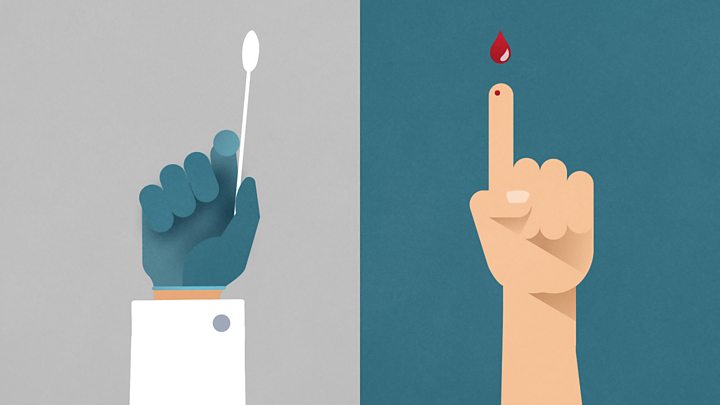The number of mobile Covid-19 testing units in the UK will more than double over coming weeks, with the military earmarked to staff many facilities.
The Ministry of Defence (MoD) said 1,763 personnel will support the 236 units. There were 96 units in April.
“Testing is at the heart of the strategy for beating coronavirus”, said Defence Secretary Ben Wallace.
The government has been challenged over its testing capacity and the data given during the pandemic.
Mobile units, which can be set up in under 20 minutes, provide access to testing, often in more remote areas.
Swabs are collected by military personnel on site and taken to one of three “mega labs” to be processed, with results expected within 48 hours.
An additional 140 Department of Health and Social Care (DHSC) vehicles will be made available across the UK.
After a successful pilot at the end of April, the government previously suggested 80 mobile units would be running by the start of May.

The MoD said it was the largest deployment of military personnel to support the government’s coronavirus response.
“The UK armed forces have played a vital role in ensuring that key workers and the most vulnerable are able to access that testing where and when they need it most,” the defence secretary said.
“Our military will continue to support however possible and for as long as needed, in order to keep the British people safe as lockdown measures are adjusted.”
The increase in support will be phased in over several weeks, the MoD said.
The move follows challenges to the government over testing capacity and statistics.
On 7 June, Health Secretary Matt Hancock said the UK had exceeded its target to increase capacity to 200,000 a day by the end of May – but only about 115,000 tests were actually carried out in the 24 hours to 09:00 BST that day.
The chairman of the UK Statistics Authority has said the presentation of the daily figures appeared to be aimed at showing “the largest possible number of tests, even at the expense of understanding”.
A government spokesperson said it was working with statisticians and that the approach throughout had been to “increase transparency”.
Early in the pandemic, military personnel helped deliver home testing kits to the more vulnerable and staffed regional testing sites before they were handed over to commercial operators.
The pop-up units were initially brought in in April to provide tests to frontline workers.
Tests are now available to all adults and most children in the UK with a fever, a new continuous cough or a loss of smell or taste. They can be done at drive-through testing sites, mobile testing units or by using home testing kits.
www.bbc.com







































